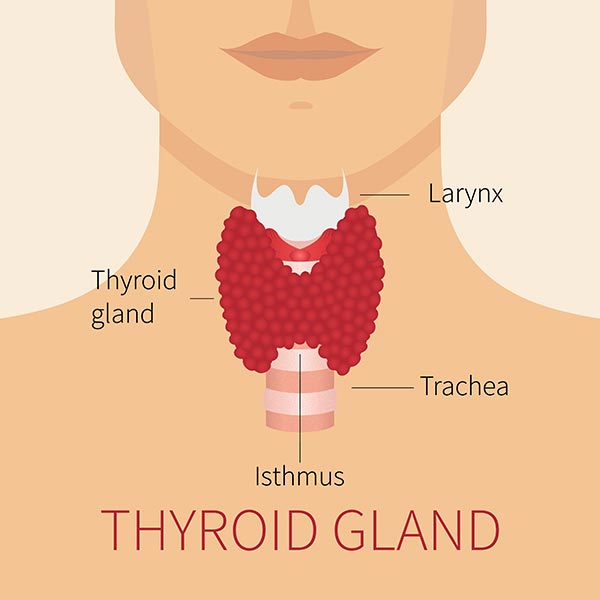Thyriod
Causes
Many diseases and conditions can cause hyperthyroidism, including:
- Graves disease (most common cause of hyperthyroidism)
- Inflammation (thyroiditis) of the thyroid due to viral infections, some medicines, or after pregnancy (common)
- Taking too much thyroid hormone (common)
- Noncancerous growths of the thyroid gland or pituitary gland (rare)
- Some tumors of the testes or ovaries (rare)
- Getting medical imaging tests with contrast dye that has iodine (rare, and only if there is already a problem with the thyroid)
- Eating too much of foods that contain iodine (very rare, and only if there is already a problem with the thyroid)
Symptoms
Common symptoms include:
- Anxiety
- Difficulty concentrating
- Fatigue
- Frequent bowel movements
- Goiter (visibly enlarged thyroid gland) or thyroid nodules
- Hair loss
- Hand tremor
- Heat intolerance
- Increased appetite
- Increased sweating
- Irregular menstrual periods in women
- Nail changes (thickness or flaking)
- Nervousness
- Pounding or racing heart beat (palpitations)
- Restlessness
- Sleep problems
- Weight loss (or weight gain, in some cases)
Precautions
- Diet: Healthy and nutritious diet plays an important role in normal hormonal flow. Immune response is triggered when intestinal lining is inflamed. Taking a lot of fruits, vegetables, salmon and extra virgin olive oil can help ensure perfect thyroid levels.
- Avoid processed foods: Transat, high fructose, refined sugar and MSG cannot be ruled out in processed foods. Even vegetables like broccoli, cauliflower, brussels, watercress and cruciferous vegetables can stimulate autoimmune diseases. Raw consumption of these can interfere with synthesis of thyroid hormones and so these should be well cooked.
- Supplements: Defiance of iodine is one of the primary reasons for thyroid issues. Supplements maybe taken and in many countries it is consumed in the form of iodised table salt and dairy foods. On the other hand, over consumption of iodine may lead to hyperthyroidism. Thyroid health can be maintained by consumption of Vitamin D or Selenium.
- Stay off from environmental toxins: Waterproof clothing, on-stick cookware, carpets, flame-resistant and antibacterial soaps that have triclosan may interfere with endocrines
Investigations
Doctors may order one or more blood tests to check your thyroid function. Tests may include thyroid stimulating hormone (TSH), T4, T3, and thyroid antibody tests. Thyroid blood tests check your thyroid function. For these tests, a health care professional will draw blood from your arm and send it to a lab for testing.
Treatment
Treatment depends on the cause and severity of symptoms. Hyperthyroidism is usually treated with one or more of the following:
- Antithyroid medicines (propylthiouracil or methimazole) which reduce or block the effects of the extra thyroid hormone
- Radioactive iodine to destroy the thyroid gland and stop the excess production of hormones
- Surgery to remove the thyroid
Complication
Thyroid crisis (also called thyroid storm) is a sudden worsening of hyperthyroidism symptoms that may occur with infection or stress. Fever, decreased alertness, and abdominal pain may occur. People need to be treated in the hospital.
Other complications of hyperthyroidism include:
- Heart problems such as fast heart rate, abnormal heart rhythm, and heart failure
- Osteoporosis
- Eye disease (double vision, ulcers of the cornea, vision loss)
Surgery-related complications, including:
- Scarring of the neck
- Hoarseness due to nerve damage to the voice box
- Low calcium level due to damage to the parathyroid glands (located near the thyroid gland)
- Hypothyroidism (underactive thyroid)
Tobacco use may make some complications of hyperthyroidism worse.

